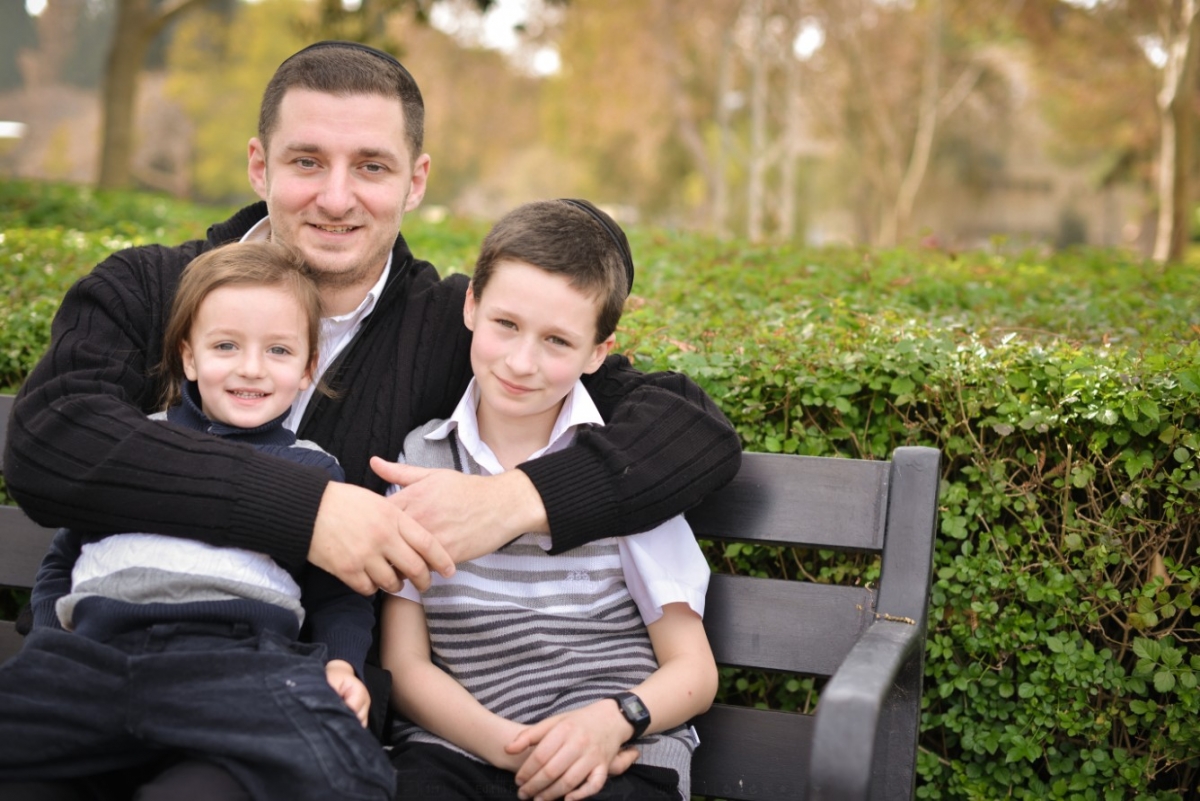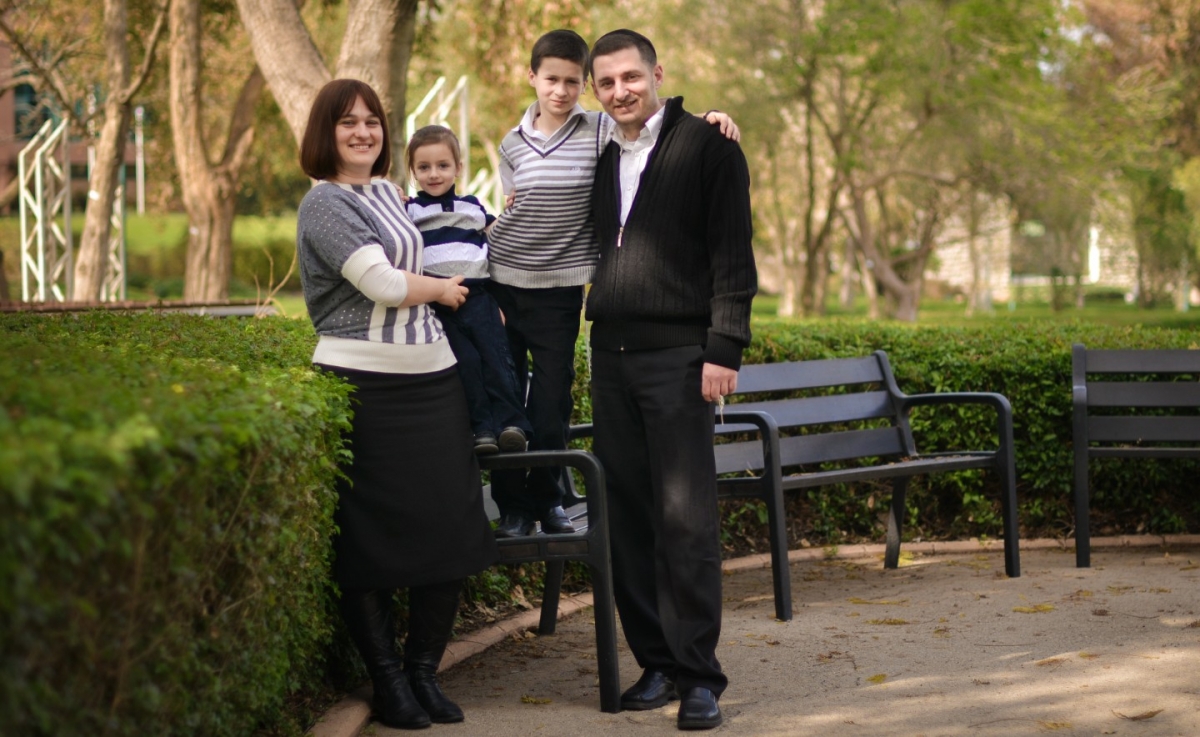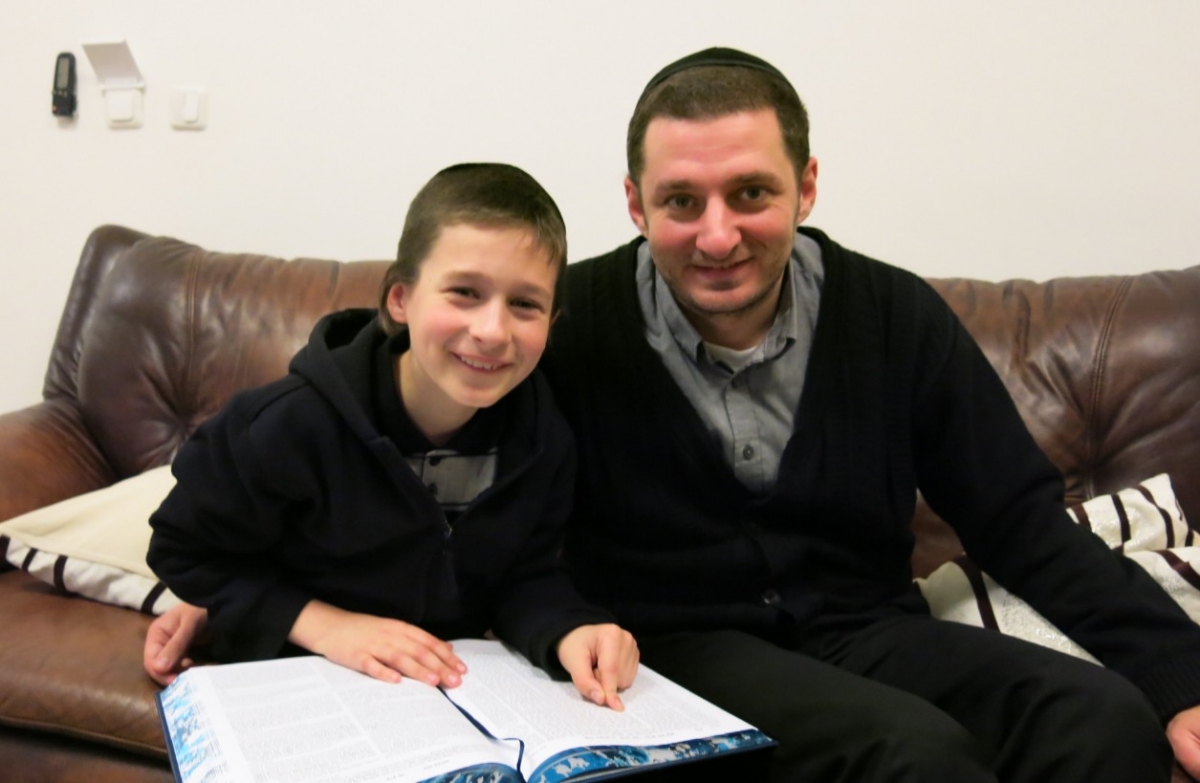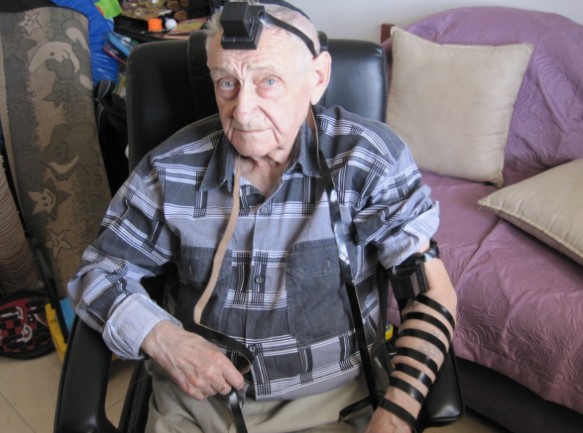From Communism in Ukraine to the Orthodox Jewish World: "I Enrolled in a Jewish School to Get Answers"
Daniel Kaplan always knew he was Jewish, but life in post-Communist Ukraine wasn't easy. His questions about his origins led him on a long journey, which ultimately provided the answers he sought. "You can't escape the truth," he says.

Until the age of 14, Daniel Kaplan entirely denied his Jewish identity. It's not that he had much choice—life in Ukraine in those days, still reeling from the destructive communist regime, wasn't easy. As Kaplan aptly describes it: "As the only Jew in school, I often felt the sting of anti-Semitic insults from the non-Jews. When they wanted to hurl their most offensive curse at me, my peers would mutter the word 'Jew' through clenched teeth, eyes burning with hatred. As a child and youth, I never understood why my friends hated Jews so much. But what shocked me most was that I never really understood how I was different from them."
According to Kaplan (36), a computer programmer, married, and a father of two from Rechovot, he never asked questions about his Jewishness because it held no significance, certainly not positive. The mindset of those days and the people in power was such that anyone seen as a believer—no matter the faith—was automatically deemed unstable and risked being committed to a psychiatric hospital. This fear likely contributed to many Jews' reluctance to openly declare their Jewishness or explore its spiritual significance.


"Despite the risk, my great-grandfather, may he rest in peace, fiercely safeguarded religious values. In my parents' home, however, although they remembered Jewish symbols from their childhood—like synagogue visits and chicken slaughter during Yom Kippur—we were not taught about faith, Shabbat, or any other Jewish values. Aside from knowing we were Jewish, we grew up without any religious or practical knowledge on the subject, so for most of my life, I remained quite indifferent to my Judaism."
Life continued like this until a Jewish school opened in Kaplan's area. From that point, everything changed. "I decided to enroll in the Jewish school—to finally investigate how I differed from my non-Jewish friends. Luckily, it was a religious school where, alongside secular subjects and Hebrew language study, we were taught Judaism. There, I began to observe mitzvot, and there I finally understood the difference between myself and someone who is not Jewish," he concludes.
A year later, Kaplan visited Israel as part of a Jewish community delegation, and at 16, he decided to make aliyah on his own. His parents joined him two years later. "I immigrated under a program called 'SALAM,' 'Students Before Parents,' by the Jewish Agency. The program's goal was to integrate us immigrants into various academic tracks." Kaplan chose the faculty of computers and mathematics at Bar-Ilan University, rented an apartment in Tel Aviv, and began his studies in 1996. After four months, he received Israeli citizenship, and two years later, he helped his parents immigrate.
Drew Closer to Judaism Through Shabbat Hosting
The intense processes Kaplan underwent—immigrating to Israel, loneliness, language barriers, and adjusting to a new mentality—weakened his connection to the religious world. Gradually, he found himself disconnected from it—the kippah was removed, the tefillin were forgotten in a corner, and Shabbat prayers were replaced by heavy textbooks and social gatherings with university friends.
But even if it seemed this state would last forever, Hashem had other plans—they are always wiser than ours. "At the Jewish school in Kharkiv, I met Rabbi Shimon Kidar, who was our supervisor. We maintained regular contact over the years, and when I lived in Tel Aviv, he lived in Jerusalem and would invite me over for Shabbat."

And you agreed to go?
"Not only did I agree, but these Shabbat experiences marked a turning point in my faith and mitzvah observance. Initially, we argued a lot. Naturally, I had to prove I knew everything—at least concerning exact sciences. In hindsight, I'm amazed at the rabbi's patience and how he didn't throw me out. Today I understand that it was precisely his respect, tolerance, and friendliness that convinced me to stay. They gave me the push to explore the subject thoroughly."
During this period, Kaplan met Natalie, who would later become his wife. "Natalie and I married when I was 24, in the midst of my studies. Encouraged by Rabbi Kidar, we attended a Jewish seminar, after which I decided to wear a kippah and tzitzit. My wife initially struggled with it, as she knew me as a secular guy. But to her credit, she followed and supported me all the way, even though she was barely interested. Over the years, she also strengthened her faith, and today she even has a regular *chavruta* over the phone. Thanks to Hashem, everything's on the rise. One of the things that greatly helped and strengthened us in our shared journey back to faith was the "Hidabroot" channel and Rabbi Zamir Cohen's books, especially "The Revolution."
 Kaplan's grandfather, may he rest in peace, strengthened in faith because of Kaplan and even laid tefillin before his death
Kaplan's grandfather, may he rest in peace, strengthened in faith because of Kaplan and even laid tefillin before his deathThis is precisely why Kaplan responded to an ad on the 'Hidabroot' site searching for volunteers to translate 'The Revolution' into Russian. "I believe translating this book is a necessary and great charitable act, not only for the youth but also for the older generation, to whom words like 'progress' and 'internet' are foreign, and who still value the written word." Thus, besides his roles as a programmer, family man, and student at 'Lev Lachim' kollels in Rechovot, he has now also added the important title of 'benefactor of the multitudes.'
The education received by former Soviet Union expatriates was highly rational and devoid of any religious connection. Did this make it harder for you to connect to more spiritual-faith based, abstract ideas? Since it is known that where intellect ends, faith begins.
"Having experienced this education personally and grown up on the theory of evolution and the like, I can tell you I was adamantly opposed to anything that can't be proven scientifically. The journey to returning to faith wasn't easy, but our fortune was that we had the opportunity to question. I'm not worried about those who oppose Judaism—I know they have the potential to draw near. I was also one of those who resisted, but when I researched different religions and realized there is a spiritual life beyond material reality, I started seeking the truth. In my wildest dreams, I never thought the truth lies specifically with the Orthodox. My wife and I attended many seminars by 'Jewish Soul,' and in one of them, I remember declaring in front of everyone: 'You destroyed my old world, but you've rebuilt it.' You can't escape the truth, and those lucky enough to ask will also find answers."

